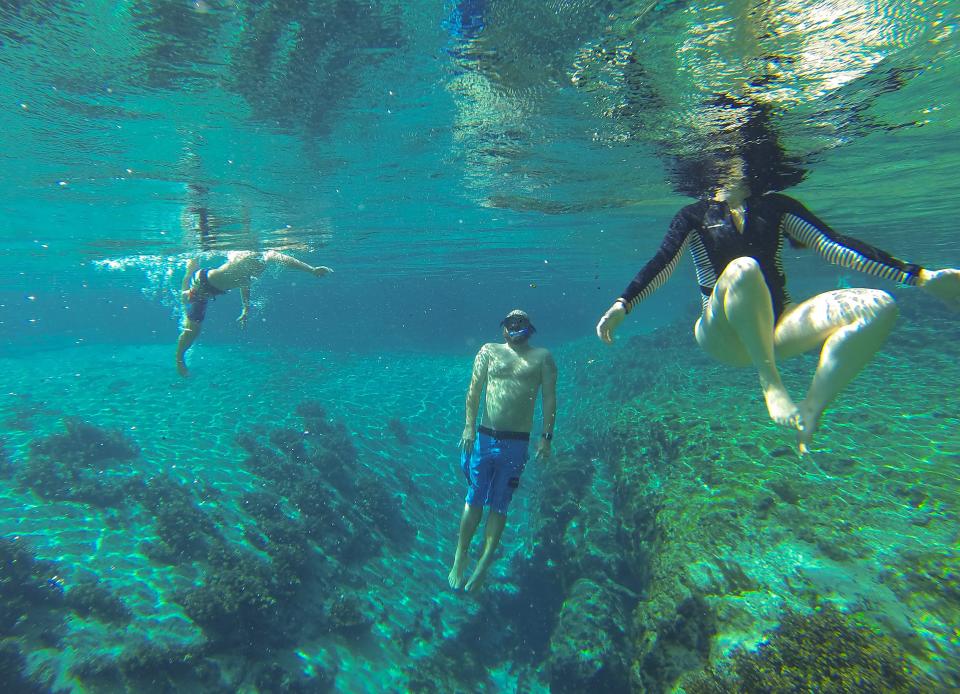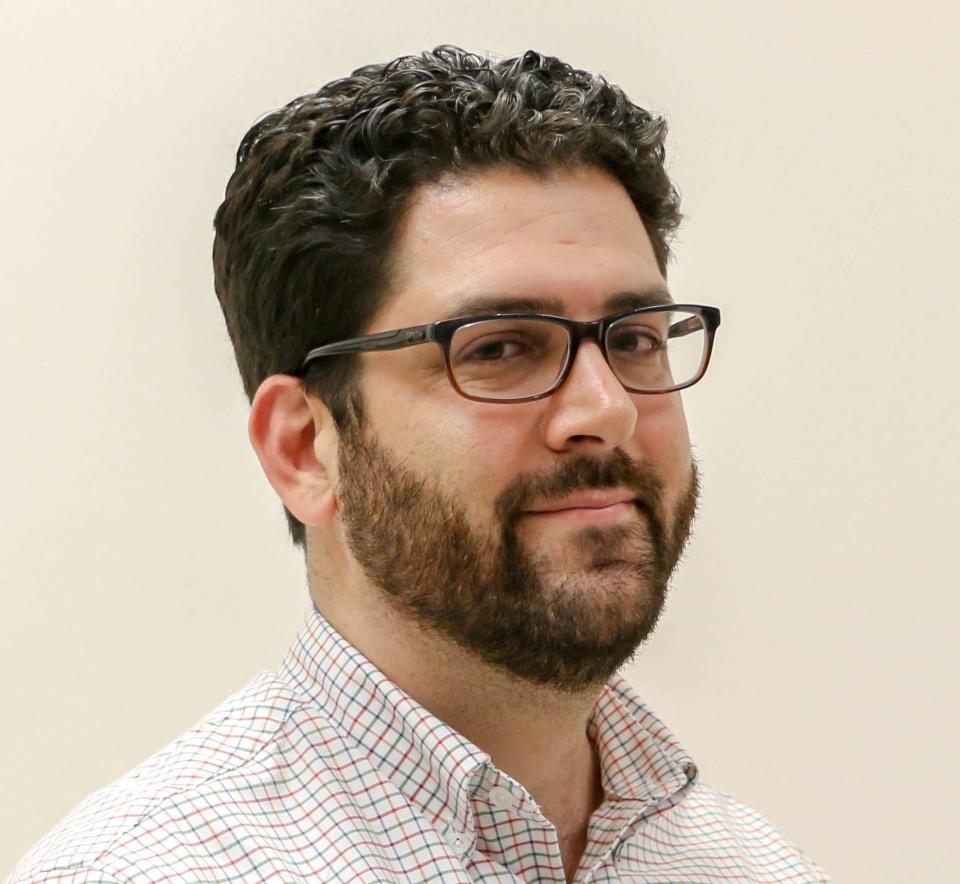Waiting 'decades' doesn't cut it. Florida officials must act today to save our springs.
Time is not on our side when it comes to clean water.
Nearly nine years ago, The Sun ran a series of news stories called Fragile Springs. The articles documented threats to North Florida’s natural springs.
Pollution from agricultural operations, septic tanks and other sources is seeping into the groundwater that flows up through springs and also supplies our region with drinking water. As this pollution fuels algae growth in what used to be crystal-clear water in springs, excessive groundwater pumping is reducing their flow.
Last year, another set of news stories called Fragile Springs Revisited showed that these problems are only getting worse in many cases. An ongoing series was started on our opinion pages, Messages from the Springs Heartland, so that readers could hear directly from environmental advocates on the reasons springs are so special and the need to do more to protect them.

The situation isn’t just dire in North Florida’s springs. Aquatic wonders throughout Florida — the beaches, lakes and rivers that make our state a wonderful place to live and a tourist mecca — are similarly threatened. The consequences can be seen in toxic algae blooms that put people and wildlife at risk, manatees starving due to depleted seagrass beds and red tides causing massive fish kills.
State officials lack a sense of urgency to fix the problem. In fact, quite the opposite.
Gov. Ron DeSantis appointed some of Florida’s most esteemed scientists to a Blue-Green Algae Task Force in 2019. Seven months later, they released 32 recommendations on reversing the trend. Today only four of those recommendations — or 12.5% — have actually been implemented, according to a recent report by a coalition of a dozen environmental groups including the Florida Springs Council.
More from Nathan Crabbe:
Finding common ground in housing debate might be more likely after election
Consider unintended consequences when making plans for downtown Gainesville
Gainesville native Andrew Warren is the latest target of Gov. Ron DeSantis
The report should have brought shame to those responsible, but merely received a shrug. Florida Chief Science Officer Mark Rains, a DeSantis appointee who oversees the task force, said he's largely satisfied with the state's progress in cleaning water bodies.
"It's going to take time ... We're talking about decades," Rains said during the task force's Aug. 4 meeting in Fort Pierce.
Afterward, he told a reporter from Treasure Coast Newspapers/TCPalm.com, "As we're continuing to make progress, I'm not overly concerned about where we are today — I'm concerned about what we do tomorrow."
“Clean springs tomorrow” is not a slogan that inspires confidence. It reminds me of a sign that some bars keep hanging all the time as a joke: “Free beer tomorrow.”
It’s an empty promise to claim the state is going to improve water quality in the future when the recent past shows such a half-hearted effort. The state’s continuing population growth only makes the problem more difficult to fix moving forward.
Ryan Smart, executive director of the Florida Springs Council, said there is no excuse for the limited progress made three years after the task force was formed. A long-term timetable for restoring springs means that more needs to be done right away.
“It does take time to fix the problem and that’s why we need to get moving,” Smart said.
After all, millions in taxpayer money have been dedicated to supporting the task force’s work. And its recommendations aren’t even the most difficult steps required to improve water quality statewide.
“This isn’t everything that’s needed,” Smart said. “This is just the first step.”
For Floridians who care about clean water, your next step needs to be holding elected officials accountable. With the primary election now in the rear-view mirror and the general election just over two months away, now is the time to demand that candidates make clean water a priority.
The problem is that all candidates claim to support clean water. And for voters who aren’t up to speed on every nuance of state environmental law, all the money spent by the state and incremental steps passed by lawmakers make it seem like real progress is being made.
So, let’s keep things simple: Ask candidates whether they pledge to pass the remainder of the Blue Green Algae Task Force’s recommendations into law during the next legislative session — not decades from now.

The latest batch of Messages from the Springs Heartland columns include pieces from springs advocates showing what they’re doing to clean, protect and restore springs. Demand elected officials show the same urgency or vote them out of office.
Nathan Crabbe is The Sun's opinion and engagement editor. Contact him at nathan.crabbe@gvillesun.com or 352-374-5075. Follow him on social media at twitter.com/nathancrabbe and facebook.com/nathancrabbe.
This column is part of The Sun's Messages from the Springs Heartland series. More pieces from the series can be found at bit.ly/springsheartland.
Join the conversation
Share your opinions by sending a letter to the editor (up to 200 words) to letters@gainesville.com. Letters must include the writer's full name and city of residence. Additional guidelines for submitting letters and longer guest columns can be found at bit.ly/sunopinionguidelines.
Journalism matters. Your support matters.
Get a digital subscription to the Gainesville Sun. Includes must-see content on Gainesville.com and Gatorsports.com, breaking news and updates on all your devices, and access to the eEdition. Visit www.gainesville.com/subscribenow to sign up.
This article originally appeared on The Gainesville Sun: Nathan Crabbe: Florida officials must show urgency to save our springs

